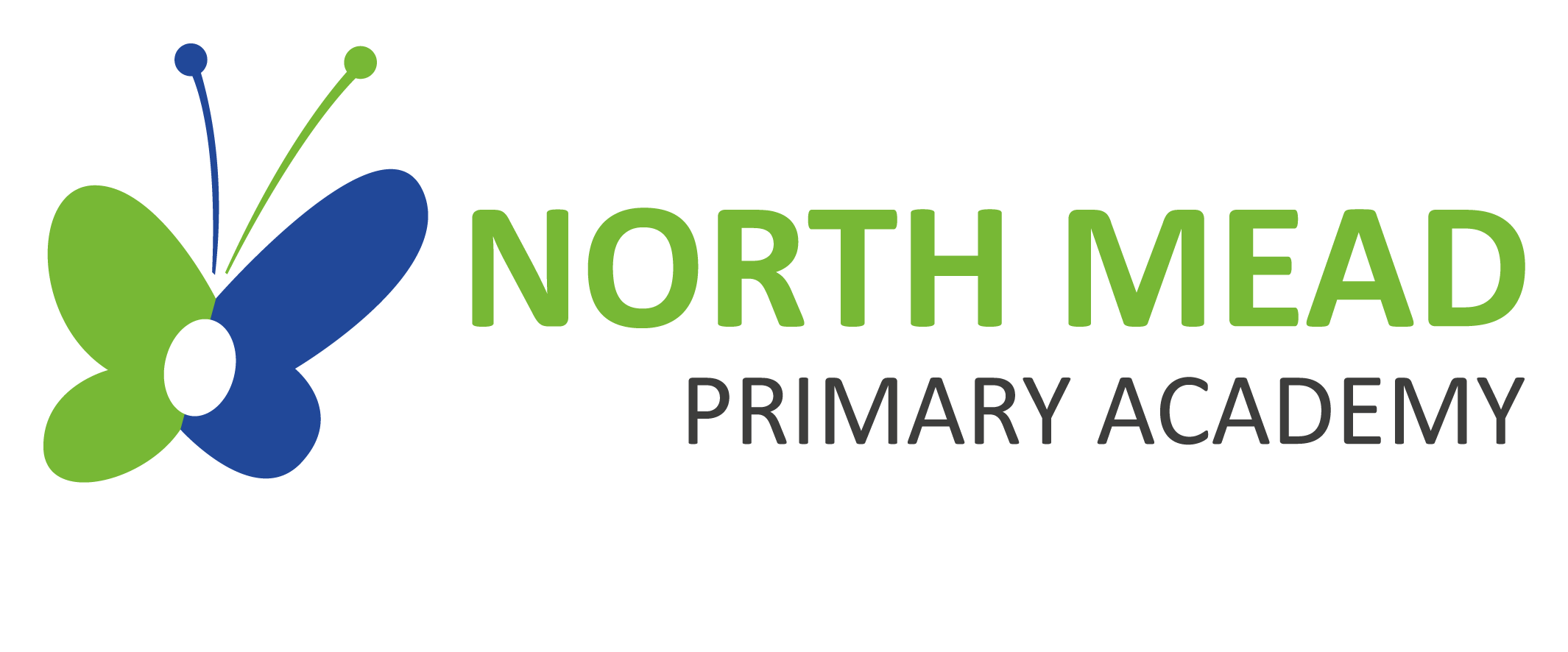North Mead Is Proud To Be An Inclusive Academy
North Mead Primary Academy is proud to be an inclusive school, valuing the individuality of all children. We are committed to giving all our children every opportunity to achieve the highest of standards. We do this by taking account of pupils’ varied life experiences and needs. We offer a broad and balanced curriculum and have high expectations of all our children. The achievements, attitudes and well-being of all our children matter.
This page shares the policies and practices that we have in place to ensure these aspirations become apparent.
Changes To SEN
The changes in the Children and Families Bill affect the way children with special educational needs (SEN) are supported in schools. The new approach began in September 2014 and places pupils at the centre of planning. The key principles of the new legislation are:
- Young people and their families should be involved in discussions about the support they need, so they can share their knowledge and feed back to the school on the young person’s progress.
- Education, health and care plans (EHC) will replace statements of special educational needs. New assessments for additional educational needs will follow the EHC guidelines from September 2014. (Existing statements will remain in force until all children and young people have completed the transition, which will be within three years).
- School Action and School Action Plus will cease and be replaced by a single school-based category for children who need extra specialist support.
Signposting and recommended services:
Care Navigation-They are an administrative team covering children & young people aged
0-19. Working with Practitioners such as Therapy Services and External Partner Agencies to
support Families, Young People and Children. Phone: 0116 215 3269 (Leave a message and
someone will get back to you) or email: [email protected]
Right to choose- If a GP needs to refer you for a physical or mental health condition, in
most cases you have the legal right to choose the hospital or service you’d like to go to.
This will include many private hospitals if they provide services to the NHS, and it does not
cost the NHS any more than a referral to a standard NHS hospital. For more information see
website- https://www.nhs.uk/using-the-nhs/about-the-nhs/your-choices-in-the-nhs/
Children and Young Peoples’ Mental Health Triage and Navigation This is a service that
helps young people in Leicester, Leicestershire & Rutland access the right non urgent
mental health services for their needs. self-refer by visiting the MySelfReferral-LLR.nhs.uk
website (except neurodevelopmental disorders, eating disorders or substance misuse.
Please contact your GP Surgery to make an appointment to discuss these conditions). Your
GP can make a referral to the service if this is right for your needs. How to get help if it is
urgent- Contact the 24/7 Mental Health Central Access Point (CAP) on 0808 800 3302 for
urgent help. The CAP is not an emergency service. If you or your child or young person have
taken an overdose or are in imminent danger of physical harm, attend A&E or call 999.
County Children Family Wellbeing service has a new name- Family Help. Family Help
provides targeted early help to families – and when needed, Child in Need services. We
provide early help services to families, where they’re experiencing difficulties that can’t be
supported by universal services such as schools or GPs alone. The support we offer is free of
charge and can be delivered at a location to suit your situation or online. Call us on 0116
305 8727 for further details. Or for more information visit the website www.leicestershire.gov.uk/education-and-children/social-care-and-supportingfamilies/help-for-children-and-familie
City Early Help-Children and young people can experience are range of difficulties at any
time in their life. Early help is for children and young people of any age and can come from
all kinds of services and organisations who work together to support the family. You might
be using some of these services already, but we want to make sure they are providing the
right support for you and your family’s needs. You can request if you have concerns about
your child’s health, development, or behaviour. The request can be made by yourself or with
the support of a professional such as a teacher, health professional or support worker.
During the assessment, you will be fully involved and listened to which will help find the
right support that you, your child and family may need. For more information about Early
Help contact 0116 454 1004 or email [email protected].
Teen Health: At Teen Health, our ultimate aim is to help all children and young people in
Leicestershire and Rutland live healthier and happier lives. We provide support through a
range of options such as group work, workshops, and one-to-one sessions. The team can
also help you get in touch with other services if you need. They provide support with
problems with friendships, Sexual health advice, supporting you to access to contraception
and testing, boosting confidence and self-esteem, coping with starting a new school,
building positive relationships, dealing with exam stress, accessing support for physical
health, receiving advice on drugs and alcohol, overcoming feelings of sadness or worry,
Staying healthy and safe. Website: www.teenhealth.org.uk
Children’s sleep charity: The charity supports parents by offering them workshops, clinics
and written material for their children who are having sleeping issues. The service uses more
of a behavioural approach and works along with the families ensuring they are fully
supported. Website: https://www.thechildrenssleepcharity.org.uk/
• Headspace for kids: Learn to meditate and live mindfully with hundreds of themed
sessions on everything from stress to sleep. Bite-sized meditations for busy schedules and
SOS exercises in case of sudden meltdowns. Free trial then monthly or yearly subscription.
Website: www.headspace.com
Dreamy Kid: Children have been showing signs of stress, technology-fatigue, and anxiety
starting at younger ages. It is a science-based fact that only 10 minutes of meditation is a
great life-tool to find inner-harmony and balance amid their busy lives. With Dreamy Kid,
just play it as they fall asleep or awake. They will begin a life-long journey that will centre
them with tools for all situations. Website: www.dreamykid.com
The Solihull Approach: A team of professionals within the NHS. They are a ‘not for profit’
organisation. The Solihull Approach is all about emotional health and well-being. They
provide online courses and face to face groups for parents. Website: www.inourplace.co.uk/
Telephone: 0121 296 4448 Mon-Fri 9am-5pm.
1-2-3 Magic: 3-Step Discipline for Calm, Effective, and Happy Parenting Paperback –
Picture Book, 2 Mar. 2016 by Thomas Phelan PhD (Author) Since kids don’t come with a
manual, 1-2-3 Magic is the next best thing. DR Thomas Phelan has developed the #1 selling
child discipline book in the country-a quick, simple, and scientifically proven way to parent
that actually works! Using his signature counting method, DR Phelan helps parents to
quickly, calmly, and effectively stop behaviours like tantrums and meltdowns, whining and
pouting, talking back, sibling rivalry and more in toddlers, preschoolers, and middle
schoolers. DR Phelan also covers how you can easily establish positive routines with children
ages 2 – 12 around: bedtime, dinnertime, homework, getting up and out in the morning,
and tips for strengthening your relationship with your kids. Millions of parents from all over
the world have used the award-winning 1-2-3 Magic to raise happier families and put the
fun back into parenting, combining love and logic to make you a more peaceful parent with
a happy kid.
County Leicestershire SEND advice – Information on SEND help available, including details
for SEND Information, Advice and Support Service (SENDIASS) for independent advice if you
think your child isn’t getting the help they need. Telephone: 0116 305 5614 (Monday to
Thursday 9am to 4.30pm, Friday 9am to 4pm) Email: [email protected]
Leicester City SEND advice – Information on SEND help available, including details
for SEND Information, Advice and Support Service (SENDIASS) for independent advice if you
think your child isn’t getting the help they need. 1st Floor Alliance House, 6 Bishop Street
Leicester LE1 6AF, Tel: 0116 482 0870 Email: [email protected]
Facebook: SENDIASS Leicester Twitter: @SendiassL
Rutland SEND advice – Tel: 0797 701 5674 Email: [email protected] Post: c/o
SENDIASS Leicester, 1st Floor Alliance House, 6 Bishop Street, Leicester, LE1 6AF
DLA- Disability Living Allowance- how to claim, visit- https://www.gov.uk/disability-livingallowance-children/how-to-claim print off the form or call Disability Living Allowance helpline; Telephone: 0800 121 4600, Textphone: 0800 121 4523 to request a form is sent via
post.
Family Fund- Apply to Family Fund to access their grant for equipmenthttps://www.familyfund.org.uk/grants/apply-for-a-grant/
Menphys offers Activity Clubs and Respite for children and young people across the
community. These include partnerships with local sports teams, specialist providers and
respite organisations. We aim to provide our members with the chance to have fun,
socialise and discover new activities in a safe engaging environment.
https://menphys.org.uk/activity-clubs-and-respite/
Spectrum Sensory Sports CIC UK- Spectrum Sensory Sports CIC UK was founded and
setup by Sean Baker. We are a registered CIC that specialise in providing sensory classes
and events for children and young adults that have learning difficulties, disabilities, Autism,
ADHD etc. We are based on Melton Road, Thurmaston in Leicestershire and we hold
daytime and evening sensory and stimulating sports classes for ages 4 to 21 years. These
tailored sports and physical activity sessions aim to increase confidence, improve mental
health and wellbeing whilst also improving physical health and social skills. Website https://spectrumsensorysportscic.co.uk/
The Carers Centre Leicestershire & Rutland – is a well-known local charity, dedicated to
supporting unpaid carers across the diverse populations and communities of Leicester,
Leicestershire and Rutland. Website- https://www.claspthecarerscentre.org.uk/ Email [email protected] or phone- 0116 251 0999

 Together We Make A Positive Difference
Together We Make A Positive Difference